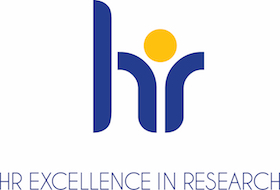English version
Research
ISNS academic profile
The specificity of the ISNS is best reflected in two terms: INTERDISCIPLINARITY and the PRACTICAL APPLICATIONS OF THE SOCIAL SCIENCES. The Institute brings together scholars in a variety of the humanities and social sciences (sociologists, anthropologists, psychologists, pedagogues, historians and philosophers), frequently representing unique sub-disciplines and academic specialisations.
Main areas of research
The research carried out at the Institute tends to be cross-sectional, and embraces the following: sociology of social transformations, including changes in emotions, morality, customs and the law; anthropology of modern times and sociology of culture – including transformations in cultural life, lifestyles, popular culture and its global character; the foundations of sociology of law and morality; sociology and anthropology of youth, the unemployed, the disabled, women and other social groups; social conflicts together with research into reconciliation, negotiations, mediation and resolving of conflicts; social policy together with research covering the non-governmental sector and the labour market; sociology of the family and social bonds; of social and cultural aspects of gender and man’s sexuality; the impact of psychoactive substances on the lives of individuals and groups, and issues in social pathologies; selected issues of social and clinical psychology, as well as the history of ideas and democracy.
Methodology
The ISNS is also a powerful centre for the development of INNOVATIVE METHODS OF RESEARCH related above all to qualitative research methodology, including visual methods and Internet research methodology. At the same time we continue to nurture CLASSIC QUANTITATIVE METHODOLOGY and conduct surveys on representative nationwide samples in Poland.
Research
The research conducted at the ISNS ranges from large-scale international projects, national projects in Poland, local studies and those carried out on a micro scale. They embrace not only topics traditionally covered by the social sciences, but also numerous new developments only now surfacing in social life.
How social knowledge is APPLIED also determines the specificity of ISNS: every year approximately 100 analyses, diagnoses, evaluations and research reports are compiled for central administration, for local government units, and for specific institutions and non-governmental organisations. They are presented at conferences, symposia, conventions, congresses and seminars, and published both on paper and online. These publications tackle key issues in the rapidly-changing Polish society, as well as many research issues of international significance. The most important thing, though, is that they are contributing to changes serving to improve the quality of life in society.

